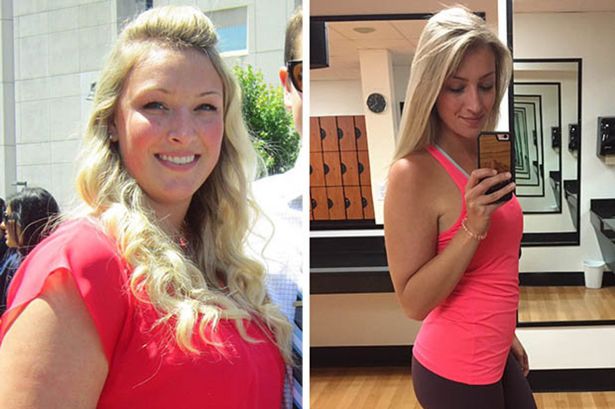What Time Of The Day Do You Burn The Most Fat?


Never disregard professional medical advice or delay seeking it because of something you have read on the Website. Full medical clearance from a licensed physician should be obtained before beginning or modifying any diet, exercise, or lifestyle program, and your physician should be informed of all nutritional change
At this point, you are hopefully skipping breakfast or at least postponing the first meal of your day for as long as possible by filling up on liquids.
The next step is eating during the proper stage of your digestion. This is the secret to burning fat! Of course, it is also helpful if you make the best eating choices, however, you may need to exhibit willpower to do so at this stage. Take small steps but continue to move forward. If you make too many changes at once, you may become frustrated and give up. This is why we recommend a transition diet by making small changes over time that will give you drastic results.
What I found to be successful for me was to go to McDonald’s every morning and buy a large cup of sweet tea. I then filled up four cups with ice and kept refilling them with the sweet tea over the course of the day. This would keep me satiated until 7:00 or 8:00 at night. At the time, I continued to eat the same junk food that I had already been eating.
I followed this routine for several weeks. During this time period, I was eating in the proper stage of my digestion but was not focusing specifically on my weight. (See more on this below.)
I had noticed that my clothes felt looser but wasn’t weighing myself on a regular basis. On Mondays, I would visit my friend’s timeshare and hang out at the pool all day. As I was walking around the area, I happened to walk by a large mirror and I had to take a second look at my reflection. I had lost so much weight from my mid-section I didn’t recognize myself. I weighed myself when I returned home and discovered I had lost 21 lbs within 2 months without “dieting”.
According to an article published on Mayclinic.org, in general, to lose 1 1/2 pounds (0.7 kilograms) a week, you need to reduce your daily calories by 500 to 750 calories. however, you can speed up this process by eating in the proper stage of your digestion. This same article also shows that you need to burn 3,500 more calories than you take in to lose 1 lb.
https://www.mayoclinic.org/healthy-lifestyle/weight-loss/in-depth/calories/art-20048065
So how was I able to average 2 lbs. a day? Because I understood how and when to eat to maximize my fat burning and when we are finished, I believe you can also see successful weight loss. The following are strategies for your consideration.
For 5 to 6 hours after you eat, if you work out or engage in strenuous activity, you are more likely to burn off the calories from the food you just ate instead of
Six to eight hours after you eat, when you exercise, the food you ate earlier has been digested and you start to burn Glycogen which is sugar.
Finally, 8 to 12 hours after you eat, you are in the proper stage of your digestion to start effectively burning fat. So during this third stage of your digestion, you should engage in physical activity in order to burn the most fat. Even when you’re sleeping, your burning fat. when you go to sleep about 8 hours after you eat you are then in the proper stage of your digestion to start burning fat.
This is why many people go for a morning run or go to the gym early in the morning. If you are experiencing a slight hunger, moderate physical activity like a set of push-ups can be an appetite suppressant.
In a video entitled “What Really Happens When We Fast” found on Dr. Eric Berggs Youtube channel, he describes additional benefits of fasting.
ATTENTION! The following video is provided by a 3rd party vender. If the video is no longer available it is because the owner of the video or Youtube removed the video from their servers. we apologize for any inconvenience.
As I reviewed above, there are 3 stages to our digestion, however, the more hours we push off our eating in the day, the increased benefits you can experience. At this point, it may be just enough to skip breakfast, as you continue building upon your willpower you may be able to postpone your eating until when most people eat dinner however, over time the more hours you will be able to postpone your eating.
In a video entitled “What Really Happens When We Fast” found on Dr. Eric Berg’s Youtube channel, he describes additional benefits of fasting.
https://www.youtube.com/watch?v=vhmtoAYVRSo
During fasting, you should be postponing your eating no more than 12, 18, or at most 24 hours. You should periodically consider extended fasting periods of at least 24 hours, 48 hours, or 72 hours. After 24 hours, you will experience a spike in growth hormones which assists in fat burning, anti-aging, healing joints, and producing new proteins. Your body starts going into autophagy where it starts to repair itself and reverse poor health issues you may be experiencing. At the 24 hour mark, your body is depleted of glycogen and begins to use ketones as an alternative fuel.
If you have ever done an extended fast, the first 24 hours is the hardest because these ketones suppress your appetite, and diminishes any junk food cravings you may have. Additional benefits include reduced inflammation and your digestion begins to heal, and your heart and brain function improve by producing new brain cells. You will experience the most benefits after 48 and 72 hours of prolonged fasting which you should only do periodically.
To get started, you should delay eating until after the 3rd stage of your digestion so that you can experience the maximum fat-burning benefits because fat is our most efficient energy source.
As with any change in your dietary habits and suggestions given in this post, it is recommended that you speak with a physician for guidance.











